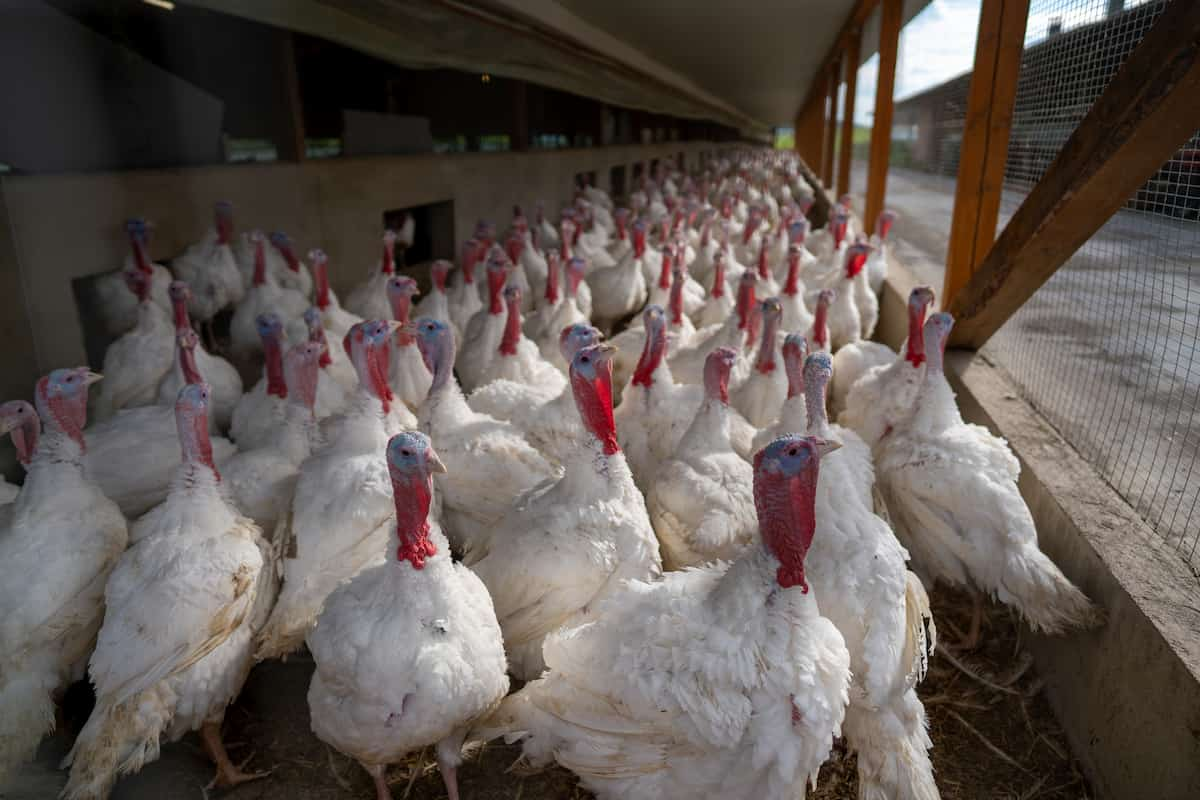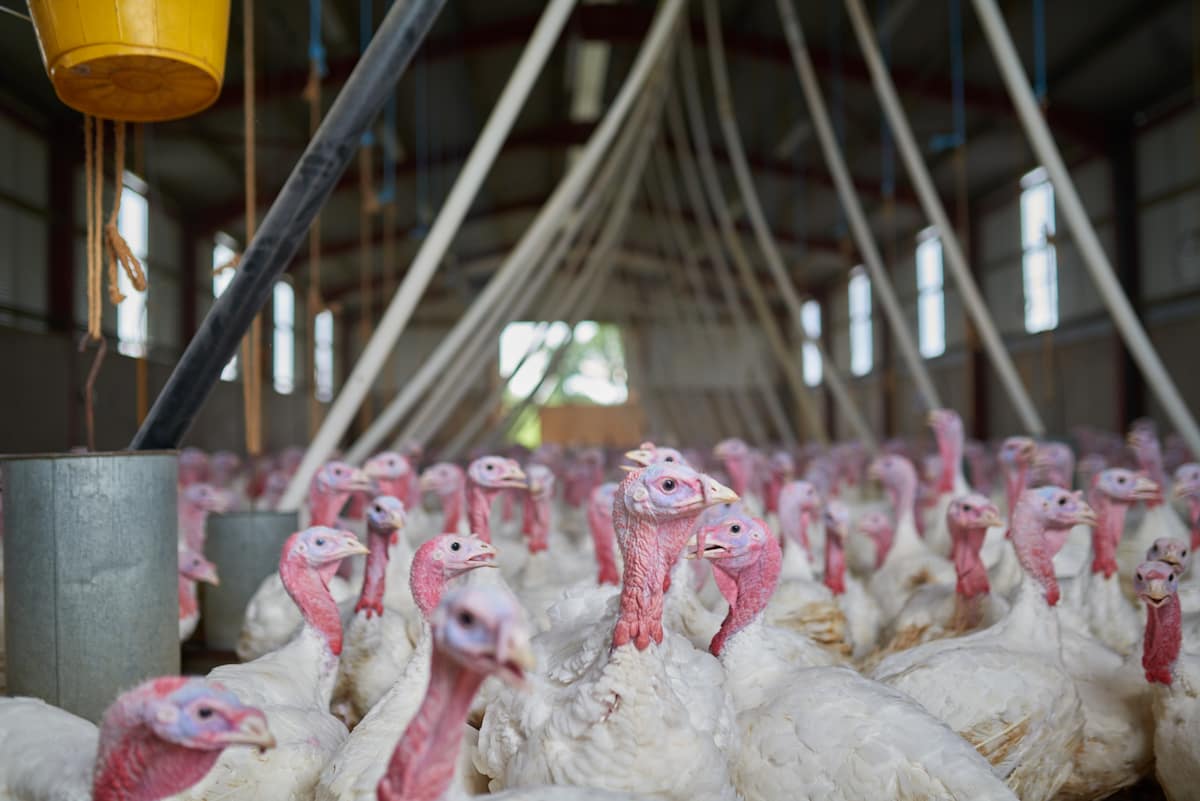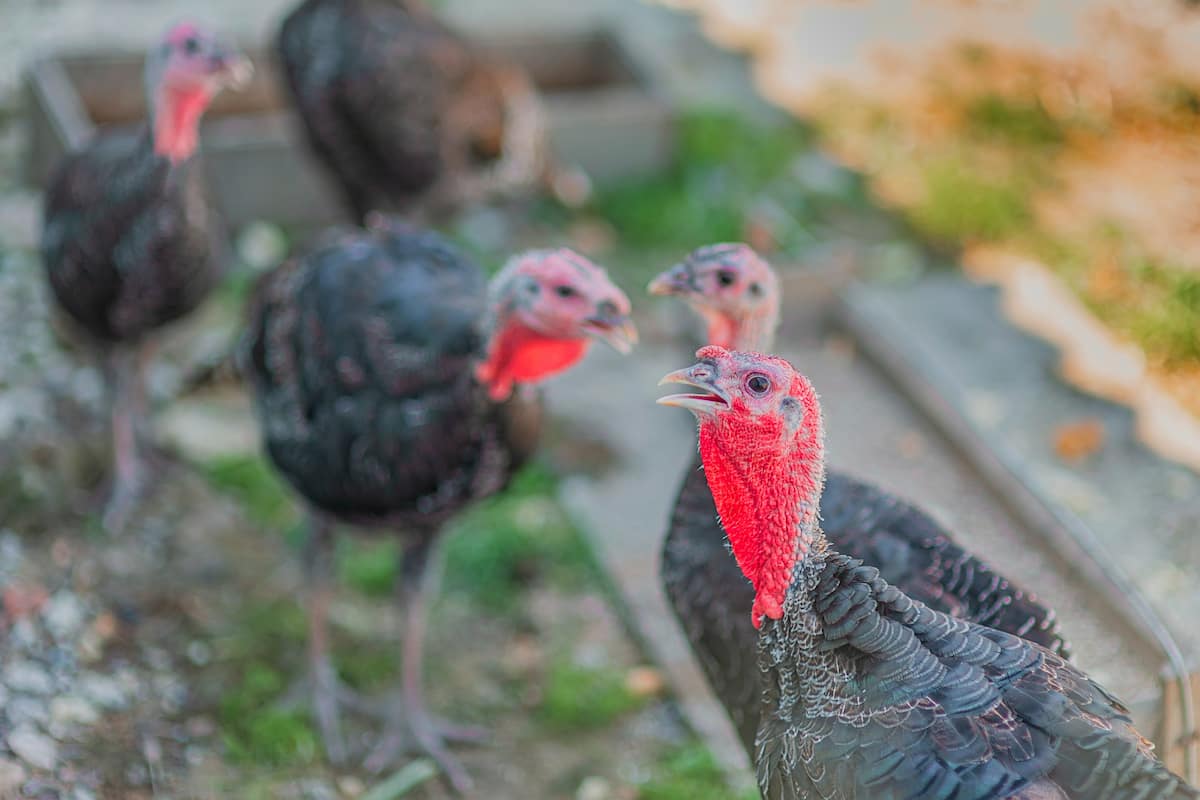Starting a turkey farming business in the USA can be profitable and rewarding but requires careful planning and management. In addition to conducting market research and creating a business plan, managing your turkeys properly is essential for their health and growth. Below we learn a Commercial Turkey farming business plan and a step-by-step guide to starting turkey farming in the USA.

How to Start Turkey Farming in the USA
Market Research
The first step in starting a turkey farming business is to conduct market research. This will help you understand the demand for turkey in your target market and identify potential competitors in your area. You should also study the trends and preferences of consumers to determine what kind of turkey to produce. Some key questions to consider during your market research include:
- What is the demand for turkey in your area?
- Who are your target customers, and what are their preferences?
- Are there any established turkey farming businesses in your area?
- What are the key trends in the turkey farming industry?
Business Plan
Once you have conducted your market research, you must create a business plan. This plan should outline your turkey farming business’s objectives, strategies, and goals. Some key components of a turkey farming business plan include:
- Executive summary: This section should provide an overview of your turkey farming business, including your goals, strategies, and key market research findings.
- Market analysis: This section should provide a detailed analysis of the turkey farming industry in your area, including information on your target market, competitors, and trends.
- Products and services: This section should describe the types of turkeys you plan to produce and the services you plan to offer (e.g., processing, packaging, etc.).
- Marketing and sales: This section should outline your marketing and sales strategies, including how you plan to promote your products and reach your target customers.
- Financial plan: In this part, you should lay out the financial basis of your turkey farming firm, including a complete budget, financial predictions, and financing sources.
- Operations plan: This section should outline how you manage and operate your turkey farming business, including staffing, equipment, and production processes.
Location
The next step in starting a turkey farming business is to choose a suitable location. You will need to find a property that is large enough to house your turkeys and has access to essential resources like water and electricity. You should also consider factors like zoning regulations and proximity to markets.
Infrastructure
Once you have chosen a location, you must build the infrastructure for your turkey farming business. This will include constructing turkey coops or pens, installing water and electricity systems, and building processing and storage facilities. You should also invest in equipment like feeders, waterers, and incubators.
Turkeys
After you have built your infrastructure, you need to source your turkeys. You can purchase turkey poults (baby turkeys) from hatcheries or other farming businesses. Make sure to choose healthy, high-quality poults to ensure that your turkeys grow properly.
In case you missed it: Feed Management in Turkey Birds: Feeding Plan, Feed Formula, and Feed Requirement

Management
Provide proper feed and water: Turkeys need access to fresh water and a well-balanced diet to grow properly. Ensure you provide enough feed and water for your turkeys, and monitor their consumption regularly. You should also provide feed and water containers that are large enough to accommodate all of your turkeys.
Monitor health and behavior: Regularly monitoring your turkeys’ health and behavior is crucial for identifying and addressing potential issues. You should check your turkeys’ eyes, nose, and feathers for signs of illness and monitor their behavior for signs of stress or aggression. You should also watch for common turkey diseases like blackheads, coccidiosis, and avian influenza.
Prevent disease and pests: Preventing disease and pests is essential for keeping your turkeys healthy and productive. You should take steps to prevent the spread of disease, such as isolating sick birds and practicing good biosecurity measures. You should also control pests like flies, mites, and rodents, which can transmit disease and cause stress for your turkeys.
Provide proper housing and environment: Turkeys need a suitable housing environment to grow properly. You should provide a dry, clean, and well-ventilated housing environment that is large enough to accommodate your turkeys comfortably. You should also provide enough light to promote growth and prevent stress.
Keep detailed records: Detailed turkey production records are crucial for tracking growth and identifying potential issues. You should keep records of feed and water consumption, weight gain, and health and behavior observations. This information can help you identify patterns and make informed decisions about turkey farming operations.
Plan for seasonal changes: Seasonal changes can impact your turkey farming operations. In hot weather, you may need to change how you feed and water your animals to reduce the risk of heat stress. You should also prepare for cold weather by ensuring your housing environment is well-insulated and providing enough bedding material to keep your turkeys warm.
Practice humane treatment: Treating your turkeys humanely is ethical and promotes their health and productivity. You should avoid overcrowding and provide enough space for your turkeys to move around comfortably. You should also minimize stress and avoid any unnecessary handling or transportation.
Process and Sell
Once your turkeys have matured, you can begin processing and selling them. This will involve slaughtering, dressing, and packaging your turkeys for sale. You can sell your turkeys directly to consumers, farmers’ markets, retailers, and wholesalers. Comply with all applicable food safety regulations and obtain necessary licenses and permits.
Expanding Business
As your turkey farming business grows, you may want to consider expanding your operations. This could involve increasing turkey production, diversifying your product line, or expanding your market reach. You may also want to consider adding value to your turkey products by offering organic or free-range options. Make sure to update your business plan and financial projections as you expand to ensure that you stay on track and manage your resources effectively.
In case you missed it: How to Start Turkey Farming in 10 Steps

Conclusion
In conclusion, starting a turkey farming business in the USA requires careful planning, research, and implementation. Following these steps can set up a successful and profitable turkey farming business.
- Feed Your Flock for Less: Top 10 Tips to Save on Chicken Feed
- Ultimate Guide to Ossabaw Island Hog: Breeding, Raising, Diet, and Care
- Hatching Answers: The Top 10 Reasons Your Chickens Aren’t Laying Eggs
- Eggs and Economics: Breaking Down the Cost of Raising Backyard Chickens
- Defend Your Greens: Proven Methods to Keep Iguanas Out of Your Garden
- Ultimate Guide to Cinnamon Queen Chicken: A Comprehensive Guide for Beginners
- Ultimate Guide to California Tan Chicken: Breeding, Raising, Diet, Egg-Production and Care
- Ultimate Guide to Marsh Daisy Chicken: Breeding, Raising, Diet, and Care
- 10 Types of Chicken Farming Businesses You Can Start for Profits